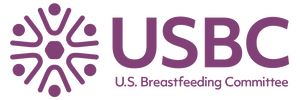|
The PUMP for Nursing Mothers Act (PUMP Act) was signed into law on December 29, 2022. The law makes several important changes to the Break Time for Nursing Mothers law, which has required since 2010 that employers nationwide provide reasonable break time and a private, non-bathroom space for lactating employees to pump milk during the workday. The PUMP Act:
|
|
The Pregnant Workers Fairness Act was signed into law on December 29, 2022. The law gives workers the right to receive reasonable accommodations for pregnancy, childbirth recovery, and related medical conditions, including lactation, unless it would be an undue hardship on the employer. The PWFA also protects employees from retaliation. The law goes into effect on June 27, 2023.
|
|
On Thursday, July 25, 2019, the Fairness for Breastfeeding Mothers Act of 2019 was signed into Public Law No. 116-30. The Act requires that certain public buildings that contain a public restroom also provide a lactation room, other than a bathroom, that is hygienic and available for use by a member of the public. This means that advocates and visitors to Capitol Hill, Senate and House office buildings, the Smithsonian buildings, courthouses, customshouses, and other federal facilities around the nation will have access to a clean, private lactation space.
Under current practice, federal agencies provide a designated, non-bathroom space for returning employees to pump breast milk during the work day. The Fairness for Breastfeeding Mothers Act extends this requirement to include not just employees, but visitors to federal facilities. |
|
On Friday, October 5, 2018, the President signed the five-year reauthorization of the Federal Aviation Administration (FAA), which included language that requires airports to provide lactation rooms that are accessible to the public. The provisions came from the bipartisan Friendly Airports for Mothers (FAM) Act, which was introduced by Senator Tammy Duckworth (D-IL) and Representative Stephen Knight (R-CA-25) in May 2017. The text of those bills were later incorporated into FAA Reauthorization bills where they were met without opposition.
All large- and medium-sized airports are now required to provide a clean, private, non-bathroom space in each terminal for the expression of breast milk. The space must be accessible to persons with disabilities, available in each terminal building after the security checkpoint, and include a place to sit, a table or other flat surface, and an electrical outlet. The bill also makes grants available to airports to help them make these critical renovations. The Act also requires airports to provide a baby changing table in one men's and one women's restroom in each passenger terminal building. Learn more about the FAM Act. |
|
On Friday, October 30, 2020, the President signed the Friendly Airports for Mothers (FAM) Improvement Act. The law extends the provisions of the Friendly Airports for Mothers Act to small hub airports. The law's requirements go into effect in 2023. Learn more about the FAM Improvement Act.
|
|
Although air travelers are explicitly permitted by the Transportation Security Administration (TSA) to bring formula, breast milk, and juice that exceed the 3-1-1 Liquids Rule for carry-on baggage, there are many reports of people experiencing the inconsistent implementation of these procedures during airport security screening. To address these recurring issues, in 2016 Representative Jaime Herrera Beutler (R-WA-3) and Senator Kelly Ayotte (R-NH) introduced the Bottles and Breastfeeding Equipment Screening Act (BABES Act) in both the House of Representatives and the Senate. The House version of the bill passed both houses of the 114 Congress unanimously and was signed into law by President Obama on December 16, 2016. It requires the TSA to provide ongoing training to ensure its officers consistently enforce TSA Special Procedures related to breast milk, formula, and infant feeding equipment across all airport security checkpoints.
|
|
Although nearly 4 million women give birth and more than 3 million breastfeed their infants annually in the U.S., there is little research to show the potentially unique effects of medication during pregnancy and lactation. Women who take medication for chronic conditions or isolated events have to make decisions with unknown impacts on their health or the health of their babies—or they forgo medication and suffer other health risks as a result. To address these gaps, in 2016 Representatives Jaime Herrera Beutler (R-WA-3) and Kathy Castor (D-FL-14) introduced the Safe Medications for Moms & Babies Act. The provision was then incorporated into the 21st Century Cures Act and subsequently passed into law. The measure established the Task Force on Research Specific to Pregnant Women and Lactating Women (PRGLAC).
|
|
As a result of the Affordable Care Act (ACA), the vast majority of private health insurance plans began to cover breastfeeding support, supplies, and counseling as preventive services for women. Yet coverage for military families under TRICARE—the Department of Defense health care program—does not fall under the ACA requirements. To remedy this gap, in 2014 Senator Claire McCaskill (D-MO) and Representative Lois Capps (D-CA-24) introduced the TRICARE Moms Improvement Act in both the Senate and the House of Representatives. The provision was then incorporated into the National Defense Authorization Act (NDAA) for Fiscal Year 2015 and subsequently passed into law. TRICARE serves approximately 9.7 million Active Duty Service members, National Guard and Reserve members, retirees, their families, survivors, and certain former spouses.
|
|
The Patient Protection and Affordable Care Act (ACA) was signed into law on March 23, 2010, by President Obama. There are three provisions of the ACA that have a direct impact on breastfeeding supports:
|
|
|
Copyright U.S. Breastfeeding Committee. All Rights Reserved.
1629 K Street NW, Suite 300 | Washington, DC 20006 Phone: (773) 359-1549 | office@usbreastfeeding.org | sitemap QuestionPro's survey software plays a major role in helping us keep in touch with our alumni, volunteers, donors, employees, and other affiliates. Surveying them has helped strengthen our relationship. |
